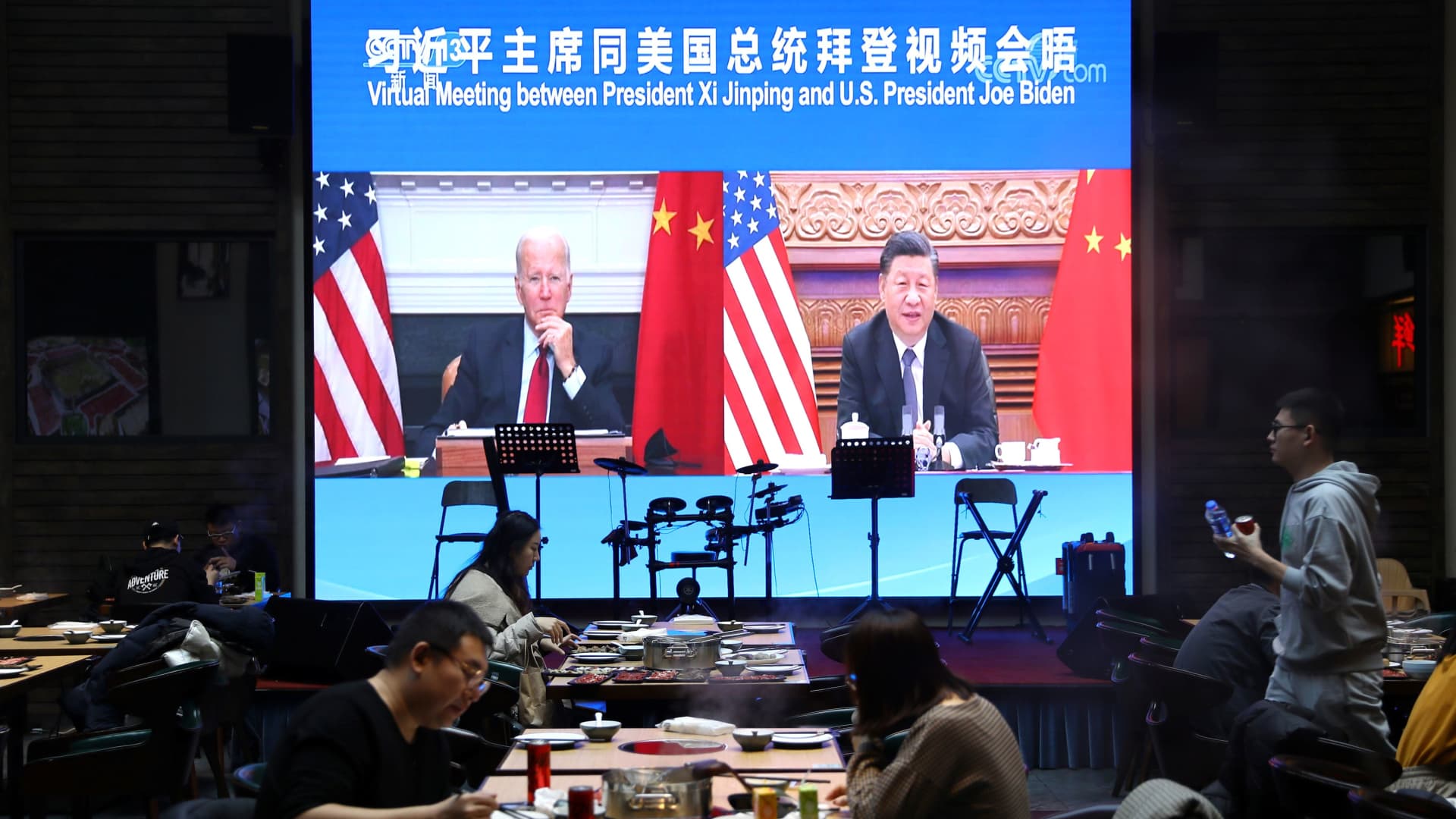
WASHINGTON — President Joe Biden held a nearly two-hour phone call on Friday morning with Chinese President Xi Jinping to discuss Russia’s invasion of Ukraine.
The call was seen as a critical test of whether Biden can convince China to stay on the sidelines of the conflict in Ukraine, and to turn down Russian requests for military or economic aid.
According to an initial readout of the call from the Chinese Ministry of Foreign Affairs, Xi told Biden that the United States and China each had an obligation to promote peace.
The White House has yet to issue a formal readout of the call, but said it began just after 9 a.m. and lasted just shy of two hours. That’s an unusually long time for a presidential call with the leader of a U.S. adversary.
Pentagon officials said last week that Moscow has asked Beijing for military and economic assistance to wage its war against Ukraine, and that initial intelligence reports suggested China had agreed.
It was unclear from Chinese readouts of Xi’s call with Biden whether the American president had shifted Xi’s thinking on Russia in any way.
Nonetheless, a longer Chinese readout of the call released Friday afternoon suggested that Biden and Xi engaged with one another more productively than many analysts had expected, given the long record of frosty rhetoric between the Biden administration and Beijing.
Xi and Biden “share the view that China and the US need to respect each other, coexist in peace and avoid confrontation, and that the two sides should increase communication and dialogue at all levels and in all fields,” the second readout said.
On Ukraine, Beijing said its pressing priority was “to keep the dialogue and negotiation going, avoid civilian casualties, prevent a humanitarian crisis, and cease hostilities as soon as possible.”
“The world is neither peaceful nor tranquil,” Xi reportedly said to Biden, and “the Ukraine crisis is not something we want to see.”
As permanent members of the UN Security Council and the world’s two largest economies, China and the United States, “must not only lead the development of China-US relations on the right track, but also shoulder our international responsibilities and make efforts for world peace and tranquility,” Xi told Biden, according to the foreign ministry.
Overall, both Biden and Xi agreed that the call had been “constructive” and they “directed their teams to promptly follow up and take concrete actions to put China-U.S. relations back on the track of steady development, and make respective efforts for the proper settlement of the Ukraine crisis,” Beijing said.
China is “ready to provide further humanitarian assistance to Ukraine and other affected countries,” said Beijing, referencing “a six-point initiative on the humanitarian situation in Ukraine.”
Beijing did not provide details on what the humanitarian plan would entail. But the mere fact that China will provide humanitarian assistance to Ukraine is a strong sign that its ironclad alliance with Moscow is under strain.
Spokesmen for both the Russian and Chinese governments publicly deny that Russia has reached out to China for help waging its war against Ukraine.
But the unprecedented economic sanctions imposed on Russia by NATO members and G-7 countries in response to the invasion have left Russia isolated and, some analysts say, desperate for financial assistance and military supplies.
Defense officials said Beijing appeared to be open to supplying Russia with military supplies, but there are few indications so far that China will overtly help Moscow evade economic sanctions.
Beijing has little interest in becoming embroiled in the economic battle between Russia and the rest of the developed world.
“China is not a party to the crisis, nor does it want the sanctions to affect China,” foreign minister Wang Yi said during a phone call Monday with Spain’s foreign minister, Jose Manuel Albares.
This is a developing story, please check back for updates.




